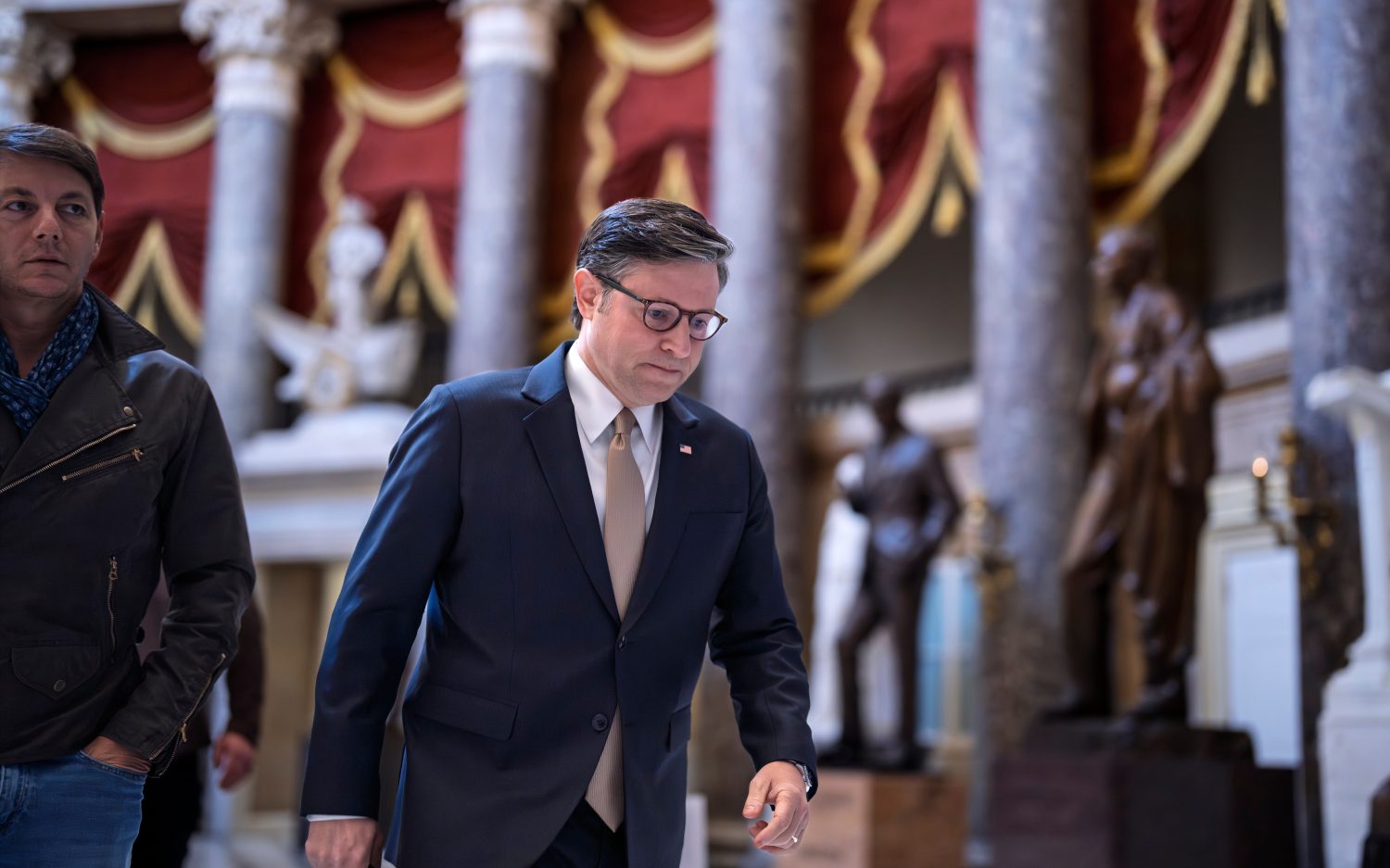High court hears Obamacare's four-word case
The Supreme Court considers arguments that could determine the future of the Affordable Care Act
The U.S. Supreme Court heard arguments today in a case that has the potential to undermine the entirety of Obamacare. It was not clear what the justices plan to do, but the arguments went much better for the federal government than court watchers anticipated.
At issue in King v. Burwell are the subsidies that help people buy health insurance on state and federally run exchanges. Those subsidies help make the economics of Obamacare work: Almost everyone who has bought insurance on the exchanges has received a discounted rate through the subsidies.
Four words in the Affordable Care Act could determine whether billions of dollars in subsidies were legally distributed. The healthcare law says the subsidies are for those exchanges “established by the state.” Only 16 states have established their own exchanges. The federal government set up exchanges in the other 34 states.
Those challenging the subsidies say the 34 federally established exchanges, under the plain reading of the law, do not qualify for subsidies. They argue the law intended to incentivize states to establish their own exchanges.
Because of the government’s subsidies to federal exchanges, “Two-thirds of the states are saying no, we’re not going to undertake this thankless task of running these exchanges with no incentives to do so,” said Michael Carvin, the lawyer arguing on behalf of the challengers.
The federal government argues a patchwork system of subsidies, where some states have subsidized insurance and others do not, makes no sense in the context of the law. Under the challengers’ reading, the federal government would have to establish exchanges that were “doomed to fail” because they didn’t have subsidies.
“Textually, their reading produces an incoherent statute that doesn’t work,” said U.S. Solicitor General Donald Verrilli Jr., who handles the federal government’s cases. Verilli successfully defended the healthcare law before the Supreme Court in 2012.
The case drew familiar lines: The conservative justices aggressively questioned Verrilli. The liberal justices aggressively questioned Carvin. The two unknown votes were Chief Justice John Roberts, who barely spoke during the hour and a half hearing, and Justice Anthony Kennedy.
Kennedy acknowledged to Carvin the challengers might win “on the plain words of the statute,” but he was concerned with the implications of Carvin’s reading. If the federal government only intended subsidies as an incentive to states to set up their own exchanges, that would present a “serious constitutional question,” he said. He worried such an interpretation would mean states would be “coerced” by the federal government into setting up exchanges.
“If your argument is accepted, the states are being told either create your own exchange, or we’ll send your insurance market into a death spiral,” Kennedy said, one of the many justices to use the term “death spiral” throughout the morning.
It’s not popular to oppose subsidies, even in a state government that opposes Obamacare. Although 34 states did not set up their own exchanges, only eight states filed briefs on the side of the exchange subsidy challengers. Meanwhile, several states that didn’t set up their own exchanges, like North Carolina, filed a brief on the side of continuing the federal subsidies to federally run exchanges.
The case, which is more about the practical application of Obamacare than the principle behind the law, did not draw as much firepower from advocacy groups as the 2012 case challenging the healthcare law. But it could have a broad impact.
If the Supreme Court rules against the federal government in this case, the 7.5 million people who have bought insurance on federal exchanges would lose those subsidies. Without them, healthy people might drop insurance coverage, leaving sicker people in the pool and driving rates up.
The solicitor general said under that scenario it would take significant time for states that have federally run exchanges to set up their own, a feat they would not accomplish in time to cover people for next year.
Some congressional Republicans have said they would come up with temporary financial assistance for such families, although they have not laid out concrete legislation. Some of the conservative justices on Wednesday suggested Congress could come up with a solution if the court rules against the federal government, which drew laughter in the courtroom.
The court likely will issue its ruling around the end of June.
An actual newsletter worth subscribing to instead of just a collection of links. —Adam
Sign up to receive The Sift email newsletter each weekday morning for the latest headlines from WORLD’s breaking news team.





Please wait while we load the latest comments...
Comments
Please register, subscribe, or log in to comment on this article.